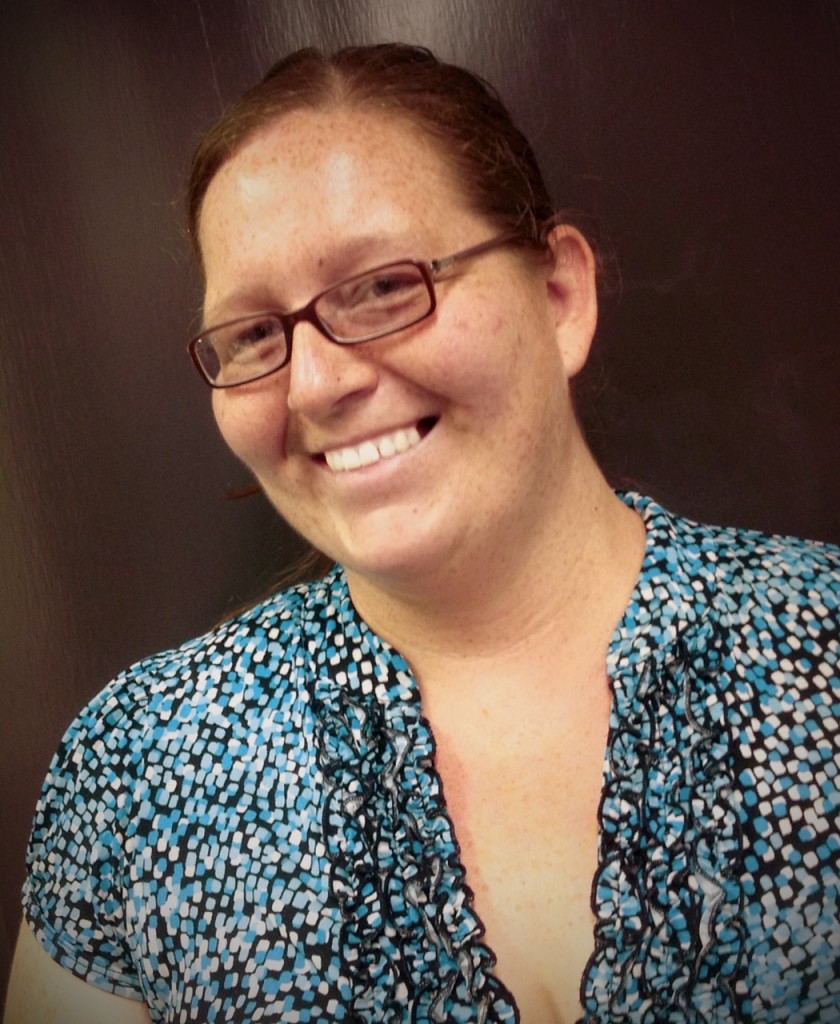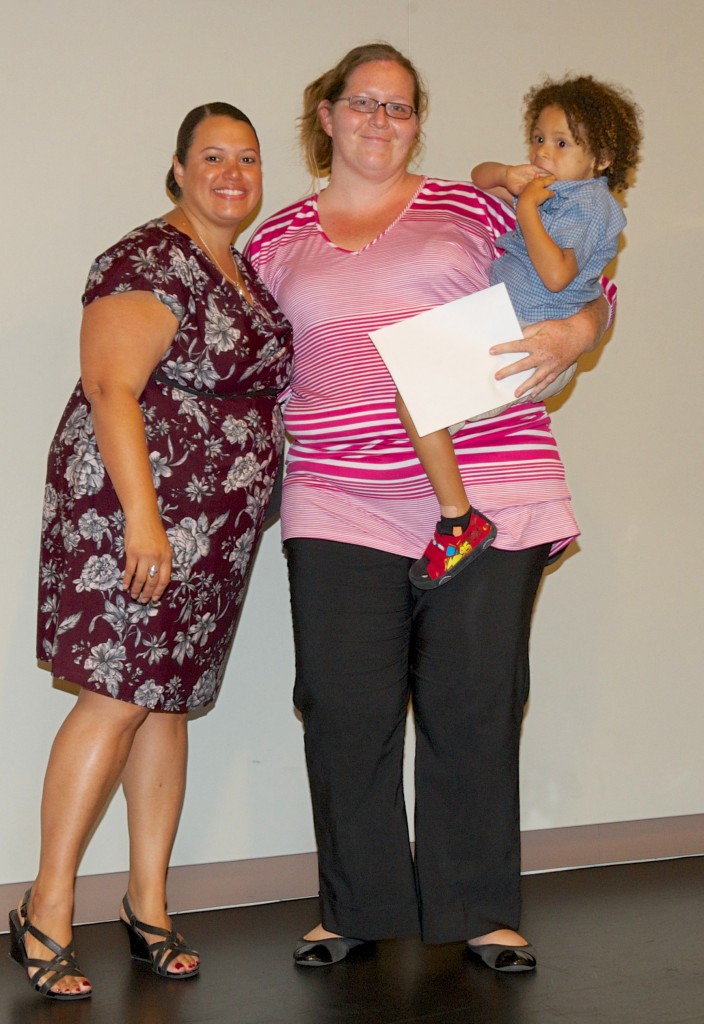 Life has changed dramatically for Heidi DeLeon since she grew up on a Michigan farm in Pinconning, a small town where at 10 p.m. the major traffic signal switches to a blinking red light and the police station closes.
Life has changed dramatically for Heidi DeLeon since she grew up on a Michigan farm in Pinconning, a small town where at 10 p.m. the major traffic signal switches to a blinking red light and the police station closes.
In a flash of violence in 1995, a series of events were set into motion that would send DeLeon’s life spiraling out of control and eventually lead to her doing a five-year stint in Chowchilla’s Valley State Prison for Women in central California years before she would become a Ronald E. McNair Scholar and a Class of 2013 graduate of California State University, Dominguez Hills with a degree in Africana studies.
DeLeon was only 14 when her father fatally stabbed her mother. Numb with shock, she was sent to live in a group home, and never really had the chance to properly grieve–or grow up.
“All the youth there were from the city and many were active gang members,” DeLeon recalled. “Living on a farm, I never was exposed to that life.”
Understandably stubborn and defiant, she was sent to live with relatives and was separated permanently from her siblings. Resentful of her predicament and how everyone seemed to view her, she couldn’t wait to escape Michigan.
“Everywhere I went, I was that kid,” DeLeon recalled of being pitied but not controllable.
The next several years were filled with what was far beyond the usual teen angst or coming-of-age struggles.
Failing out after a year at Northwood University, a private institution in Michigan, and tired of being the object of sympathy, at 19 years old and alone, DeLeon boarded a Greyhound bus headed for California with only $400 to her name.
“I’m going to make a new life,” DeLeon recalled telling herself.
College was the last thing on her mind.
“I couldn’t care less about getting a degree,” she said in hindsight.
Her new life was carefree at first, but also uncertain and not very comfortable. Upon her arrival in Southern California, DeLeon fell in with a group of “runaways and kids out of the system” who were voluntarily living on the streets of Hollywood.
“It was the mentality of being 19 and doing whatever you wanted to do,” she recalled.
Homeless off and on for a year and a half, DeLeon sporadically lived at Covenant House California, a nonprofit emergency shelter for homeless youth.
Through a lead provided by a friend she got a job fielding phone calls at a law firm. But her social life proved too strong of a downward pull. She started doing drugs. Then came legal troubles.
“It’s kind of hard; you’re targeted because you’re hanging out with who the police already know are the bad kids in Hollywood,” DeLeon said.
In 2003 she was arrested for making terrorist threats. She doesn’t remembering doing so, but she can’t be certain that in her drug- and alcohol-induced state it didn’t happen. Obstinate, she refused to talk and worse, she failed to understand her options and the impact her cavalier attitude would have on her life.
The harshest penalty was imposed after she was labeled “prison material” during an evaluation period, signing documents without knowing what they were, and being instructed by her lawyers to plead guilty.
“I went from doing six months to five years because of a report somebody wrote,” she said.
But her time in prison wasn’t unproductive.
“I learned very quickly that I could do [prison] jobs that most other [inmates] couldn’t do because I had somewhat of an education,” she said.
Working as a prison clerk and seeing how the position earned her a certain amount of respect from fellow inmates was the beginning of building her self-confidence. But it wasn’t exactly a straight shot at redemption.
After her release, she had another brush with the law in 2006, but this time instead of going to jail she turned a bit of leniency into an opportunity.
“A light came on and I realized nobody is going to help me to do anything and I just need to help myself,” she said. “I had read through all the prison manuals and I remembered a specific section that said I was entitled to $2,500 as a parolee and when I went in and demanded it they were shocked that I even knew about it.”
With a little reentry cash in hand, she was able to begin paying off her defaulted student loans from what seemed like a lifetime ago.

Making her way back to society via a halfway house on skid row, she knew something had to change. But her confidence was still wavering. At a sober living meeting she met someone who worked at Passages, an addiction rehabilitation facility in Malibu.
“I saw how her doing the work was helping her at the same time, after so [many] people telling me, ‘You can’t do anything, you’ll never be able to do anything, you’ll never be able to get a job,’” DeLeon said. “Through her, I was able to see that that wasn’t really true.”
With her troubles fading behind her, DeLeon secured regular employment, gave birth to her son, earned her associate’s degree in drug and alcohol counseling from Los Angeles City College, where her mentor and counselor Liz Hernandez, honored her with the Cooperative Agencies Resources for Education program award, a recognition for single parents who excel in education. DeLeon was beginning to rebuild her life.
Since transferring to CSU Dominguez Hills in 2011, DeLeon received the 2012 Soroptomist Women’s Scholarship for college women who are sole providers in their families, and this year, the second-time National Council of Black Studies (NCBS) national conference presenter was inducted into the NCBS Ankh Maat Wedjau Honor Society, which promotes scholarly activity, research, and publication among students and academic professionals in the field of Africana studies. She joined a select group of distinctive Toros who were inducted in previous years, including the late founding chair of Africana studies, William A. Little.
Originally interested in psychology, her interest in Africana studies began after she earned her A.A. degree. She was taking general education courses at a community college, but was dismayed at the disparity in the presentations of historic and cultural facts.
“I took a mainstream history class and then I took an Afro-American history class and I was just appalled by the contradictions,” she recalled. “But more appalled by the first history class and the way that things were talked about.”
Hooked and wanting to learn more about history from another perspective–“the other history they don’t tell you about”–she scouted several universities that offered Africana studies. It was the accessibility of the faculty at CSU Dominguez Hills that won her over.
“When I [first visited CSU Dominguez Hills], I made an appointment to talk with Dr. Faraji,” she said. “Everybody was in their office, everybody was happy and their door was open.”
Chair and professor of Africana studies Salim Faraji, who happens to share an interest in religion with DeLeon, urged her to apply for the McNair program and emphasized the department’s philosophy on mentoring.
“That was the other thing that really stuck, because I feel mentoring is really important. I had a good mentor at community college. To come here to have a good mentor was critical. Especially for people like me who … according to statistics, aren’t meant to go to college,” DeLeon said. “If you don’t have any family to look to for how to get through college, you have a mentor. You have a least one person to field all your questions.”
Within the last couple of years, DeLeon finally feels like she is really moving forward and can accomplish anything she puts her mind to.
“I realized my past, it matters, but it’s not going to stop me from getting jobs. I never made it sound like a sob story,” she said.
The first-generation college student who graduates this week in the College of Arts and Humanities/College of Extended and International Education Commencement Ceremony at 11 a.m. on Saturday, May 18, has already gained professional experience. She has been offered permanent employment out of the internship counseling positions she’s held at La Clinica Oscar Romero, a health care provider for underserved Angelinos; the Volunteers of America Los Angeles, a transitional housing for veterans; and Los Angeles Centers for Alcohol and Drug Abuse in Skid Row, where a position was created for DeLeon.
DeLeon, who lives in Downey with her now five-year-old son and fiancé, has employment options these days, but one thing she is certain of is that she will continue her education. She has been accepted to the Religion and Social Change master’s program at Claremont Lincoln University and will begin in fall 2013. After that, she hopes to one day earn a Ph.D. in social welfare concentrating on research in social work.
Getting to this point has been difficult for DeLeon, who now pays it forward by sharing her story with numerous groups through organizations that serve troubled youth, but don’t ask her about being a victim.
“I’m not a victim, I’m a survivor and at this point I’m thriving,” she asserted.